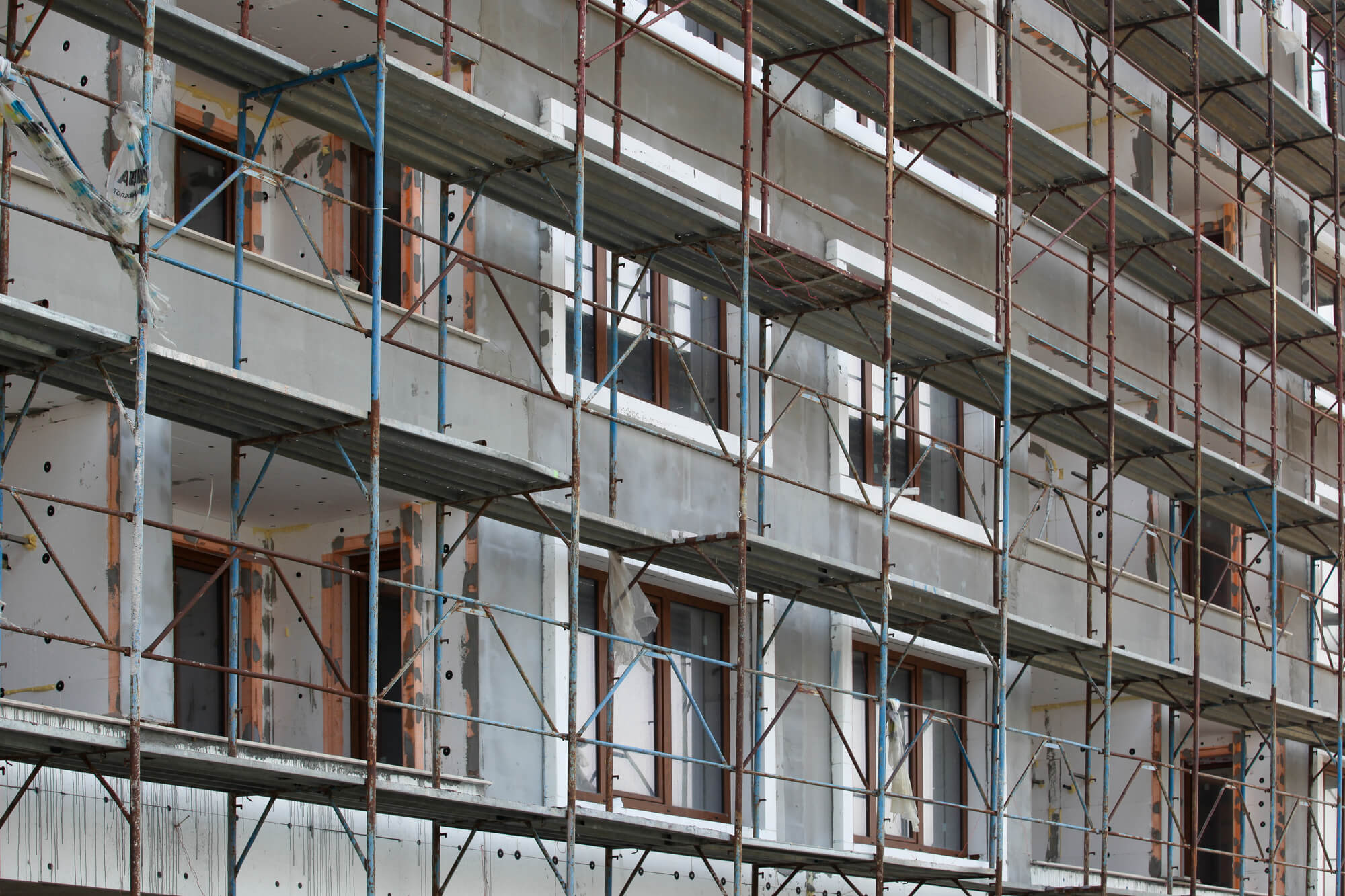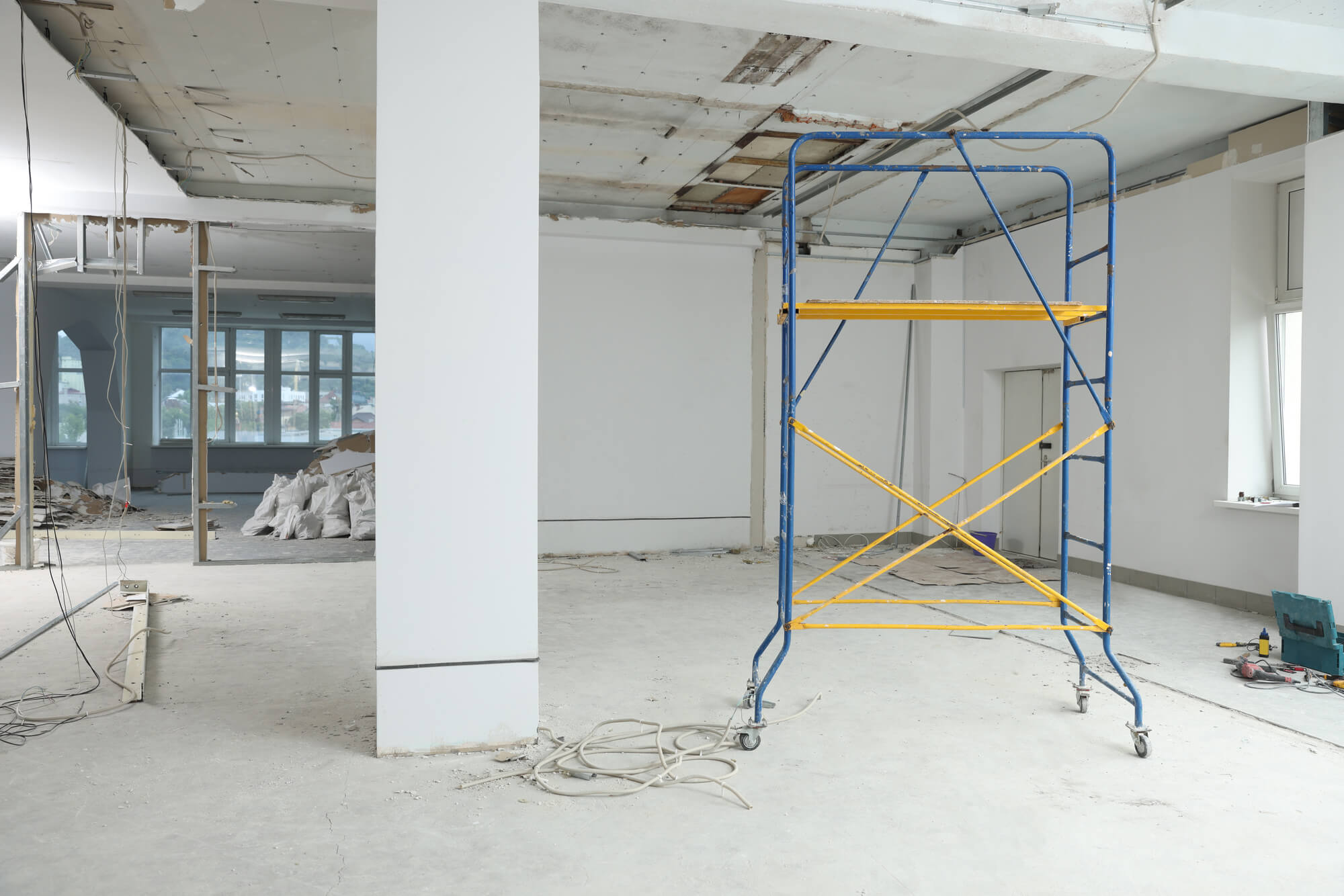June 30, 2024
Beyond Aesthetics: Combining Design and Functionality in Commercial Roofing
Many commercial property owners make the initial mistake of prioritizing aesthetics when
Whether you own hotels, hospitals, offices, or senior care facilities, the condition and appeal of your commercial properties directly impact your bottom line. For buildings in the hospitality business, an upgraded and efficient space can lead to an increase in occupant satisfaction, operational efficiency, and overall productivity. However, the path to achieving these benefits is not always smooth.
While the prospect of a renovated property brims with potential, problems and delays can often cast shadows over the project. From shifting scopes to unexpected financial crunches and unforeseen complications, a hospitality renovation can quickly turn into a logistical puzzle.
In the following sections, we'll explore the most frequent causes of project delays and strategies to avoid them. We'll also emphasize the importance of comprehensive planning, effective project management, and clear communication, and discuss how working with a professional renovation contractor like BlueTeam can make a real difference.

Scope creep refers to the gradual expansion or alteration of the project's initial objectives, often without proper documentation or approval. In the context of hospitality renovation projects, scope creep can be a persistent issue.
The dynamic nature of the hospitality industry means that guest expectations can change rapidly. In an effort to meet or exceed these expectations, property owners involved in the project may introduce additional features, amenities, or design changes without considering the impact on the project's original scope.
Scope creep often results in unforeseen expenses. The introduction of new elements or changes to the project can increase costs related to materials, labor, and compliance. These budget overruns can strain financial resources allocated for the renovation.
Moreover, additional tasks and changes require more time to complete, which can affect the reopening date and future revenue.
Often, budgetary constraints stem from insufficient planning during the project's initiation phase. Failing to account for all necessary expenses, including materials, labor, permits, and unforeseen contingencies, can result in budget shortfalls.
The hospitality industry is also rife with unforeseen expenses due to its complex nature, including:
Unfortunately, exceeding the budget can lead to resource limitations, hindering the completion of renovation tasks. Shortages of funds can delay procurement of materials or payment to contractors, potentially leading to project slowdowns.
Budgetary constraints can also impact project timelines. If work cannot proceed due to financial limitations, delays may occur and disrupt guest reservations and revenue streams.
Unforeseen complications often occur due to limited visibility into the existing condition of the commercial property. Factors like outdated building plans, concealed defects, or the discovery of hazardous materials can all contribute to these challenges.
When such issues arise, they can necessitate extensive revisions to the project plan, causing delays and additional costs. Addressing complications might require specialized expertise and compliance with safety regulations, further extending project timelines.
Communication breakdowns in renovation projects can be attributed to various factors. One primary cause is the divergence in understanding project requirements among stakeholders. When different parties interpret project specifications differently, it can lead to confusion and misalignment of expectations.
Ineffective sharing of critical information is another factor that can impede communication. If crucial updates, changes, or progress reports are not consistently shared among project team members, it can create gaps in knowledge and hinder decision-making processes.
Delays are a common consequence of communication breakdowns. Issues that remain unresolved due to miscommunication can hinder decision-making processes and impede project progress.
Furthermore, misunderstanding project requirements produces work that does not align with the intended scope, compromising the quality of the renovation.
The causes of unexpected structural or site-related issues can include the aging of the property, lack of up-to-date records, or insufficient initial assessments. Structural deficiencies, soil conditions, or foundation problems may remain hidden until the renovation process begins.
Addressing unexpected structural or site-related issues can require substantial time and financial investments. Project timelines might be prolonged while structural assessments are conducted, remedial measures are planned, and necessary approvals are obtained.
Finally, external factors like inclement weather and natural disasters are beyond the control of parties involved in the project. They can disrupt construction schedules, material deliveries, and workforce availability.
Severe weather conditions may halt construction activities and result in extended timelines and potential damage to exposed structures. Delays can have a domino effect on subsequent project phases, affecting budgets and overall project success.
Project management is a structured approach that encompasses planning, organizing, and overseeing all aspects of a project from inception to completion.
It involves a systematic framework for defining project objectives, allocating resources, managing risks, and ensuring that the project stays on track to meet its goals.
At BlueTeam, project management consist of the following stages:

Effective communication and collaboration facilitate the seamless flow of information while fostering a collaborative environment conducive to timely project execution.
Establishing clear communication protocols ensures project stakeholders, including contractors and property owners, have a shared understanding of roles, responsibilities, and expectations. This reduces the likelihood of miscommunication and prevents potential delays stemming from misunderstandings.
Regular project meetings provide a platform for team members to discuss progress, challenges, and upcoming milestones. Meetings encourage open dialogue, allowing for the timely identification and resolution of issues that could otherwise escalate into major delays.
Documented communication provides a historical record that can be referenced when clarifications or disputes arise, ensuring accountability and preventing project delays.
Monitoring and tracking progress enable project teams to stay informed, identify deviations, and take timely corrective actions.
Implementing KPIs specific to the renovation project allows for quantifiable measurement of progress. KPIs can include milestones achieved, budget adherence, and quality standards met. These indicators provide early warning signs if the project deviates from its course.
Project managers should compile and distribute regular progress reports to stakeholders. These reports outline the current project status, highlight achieved milestones, and address any potential issues that may affect timelines. Transparent reporting fosters confidence and alignment among stakeholders.
Monitoring progress enables project managers to assess resource allocation. Adjustments can be made as needed to ensure resources are optimally distributed, preventing bottlenecks and resource shortages that can lead to delays.
Contingency planning helps project teams prepare for unforeseen setbacks and challenges, mitigating their potential impact on project timelines.
Project teams must anticipate potential risks, considering factors like weather, site conditions, or regulatory changes that could impact the renovation.
Allocate a portion of the project budget and timeline as contingency resources, which will serve as a safety net to address unforeseen challenges without compromising the project's overall progress or budget.
Develop scenario-based contingency plans to address common risks. They should outline specific actions to take if a risk happens. Scenario planning ensures project teams are well-prepared to respond promptly and effectively to setbacks.
Continuously review and update the risk assessment and contingency plans throughout the project lifecycle. As new risks emerge or existing ones evolve, project teams can adjust their strategies to mitigate potential delays.

When it comes to avoiding project delays in your hospitality renovation and other projects, partnering with BlueTeam is your key to success. Our seasoned experts in hospitality renovation project management understand the unique challenges the industry presents and are equipped with the knowledge and tools to mitigate these challenges effectively.
With BlueTeam, you can benefit from real-time project updates and documentation through our user-friendly app. Stay informed at every stage of your renovation project, ensuring transparency, accountability, and timely decision-making.
Contact us today for a quote and discover how BlueTeam can streamline your project, enhance efficiency, and ensure successful, on-time project delivery.